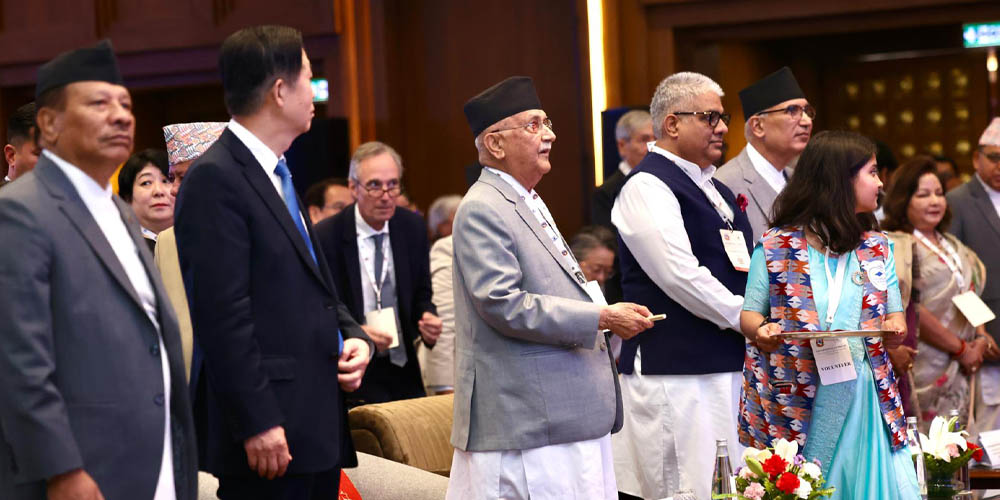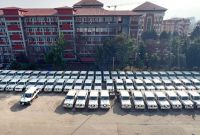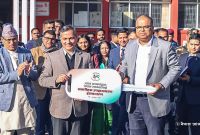From the Roof of the World, Nepal Calls for Climate Justice: Sagarmatha Sambaad 2025 Begins in Kathmandu

Kathmandu — Against the dramatic backdrop of the Himalayas, Nepal today inaugurated the highly anticipated Sagarmatha Sambaad, an international dialogue on climate action, sustainability, and global partnerships. The theme for this year's summit — “Climate Change, Mountains, and the Future of Humanity” — echoes the deepening urgency of a world grappling with ecological crisis.
Prime Minister KP Sharma Oli formally opened the summit during a special ceremony in Kathmandu, stating, “As our mountains melt and our rivers swell, the future of humanity hangs in the balance. Let this dialogue become a new beginning for global solidarity.”
Over 350 distinguished national and international personalities — including ministers, diplomats, environmental experts, and representatives from multilateral institutions — are taking part in the event, making it one of Nepal’s most significant diplomatic initiatives in recent years.
Earlier, Foreign Minister and Coordinator of the Sambaad Management Committee, Dr. Arzu Rana Deuba, welcomed the gathering, delivering a poignant keynote address that moved the audience with both data and emotion.
“Our glaciers — silent sentinels of a healthy planet — are melting at an alarming rate,” she said. “Structures formed over millennia are vanishing before our eyes. Mountain communities, which have thrived in harmony with nature for centuries, now face an existential crisis.”
Dr. Deuba emphasized how Nepal’s mountain regions are enduring extraordinary stress, with increasingly frequent floods, glacial lake outbursts, droughts, water scarcity, and forest fires wreaking havoc on lives and livelihoods. “This is no longer a distant threat. It is a daily reality,” she warned.
Calling the Himalayas not only a natural wonder but also a pillar of Nepal’s cultural heritage and national identity, Deuba urged for stronger international cooperation. “We inherited a healthy planet from our ancestors. It is our moral duty to pass it on — green, resilient, and alive — to future generations.”
She highlighted Nepal’s climate commitments under the Paris Agreement, reiterating its goal of achieving net-zero greenhouse gas emissions by 2045. She also praised Nepal’s globally recognized community forestry model, saying it has become a beacon of conservation and carbon sequestration success.
However, she underscored that the burden of the climate crisis is far greater than what Nepal can handle alone. “We urgently call for sufficient, predictable climate finance to implement national and local adaptation plans,” she said. “This is not just about mountains — it’s about justice.”
As the inaugural session concluded, delegates prepared to break into parallel thematic sessions covering critical topics such as global temperature goals, sustainable mountain economies, climate justice, and intergenerational equity.
From the heights of Sagarmatha (Mount Everest), the message Nepal sends to the world is both clear and urgent: the mountains are melting, time is running out, and the world must rise — together.
KP Sharma Oli India In Nepal China In Nepal Arzu Deuba




![From Kathmandu to the World: How Excel Students Are Winning Big [Admission Open]](https://nepalaaja.com/index.php/img/70194/medium/excel-college-info-eng-nep-2342.jpg)


